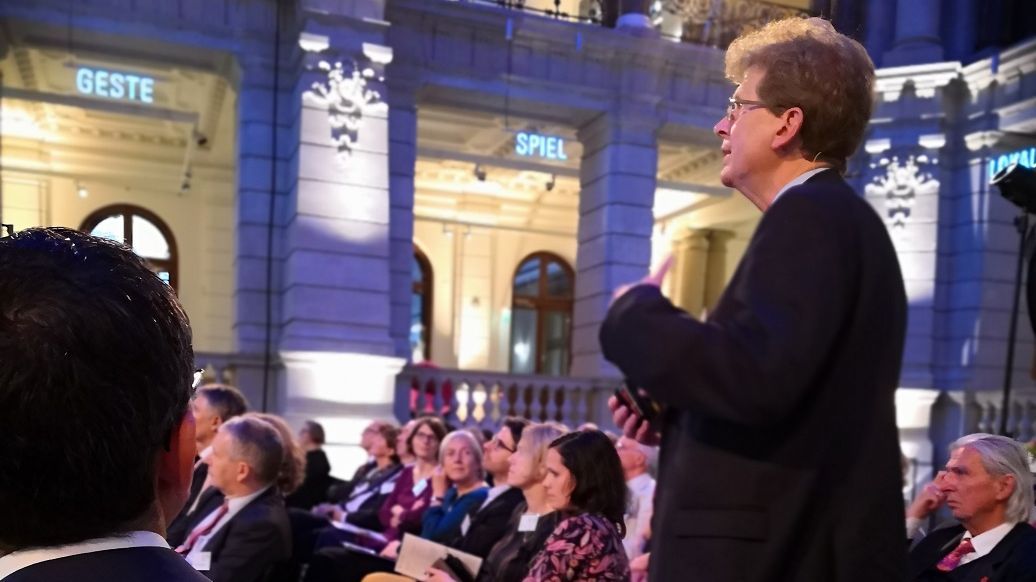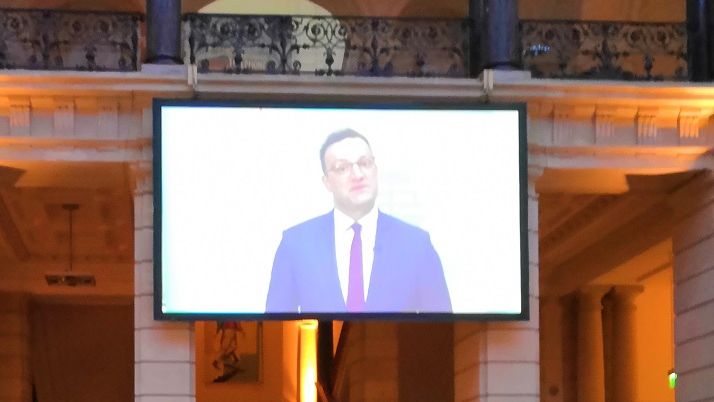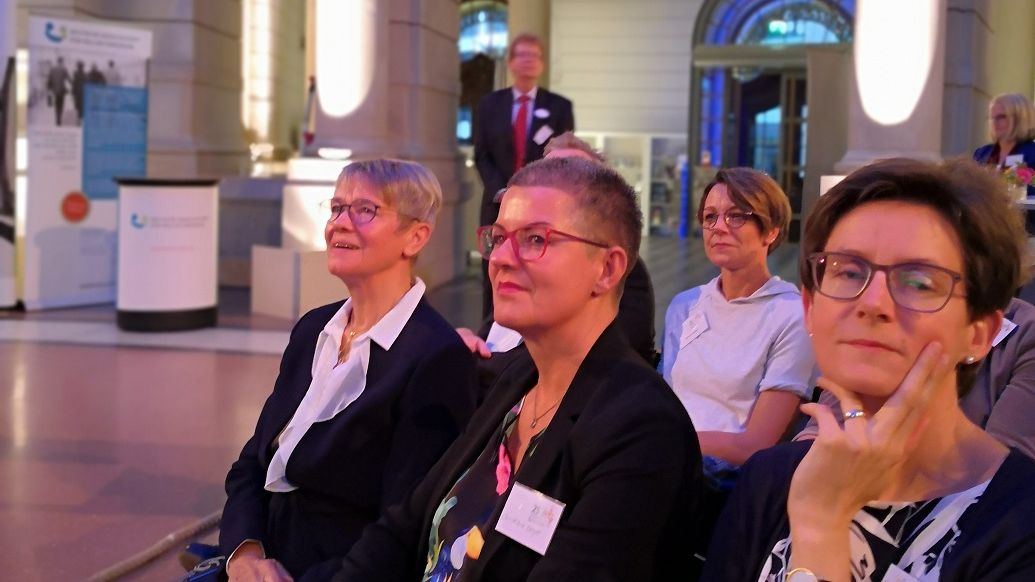The German Association for Palliative Medicine is not a classical medical society. Although established as medical society it welcomes nurses, lawyers, social workers, psychologists, healthcare chaplains and other allied professionals amongst its 6000 members, who all share a concern for people with life-limiting illness and their caregivers. The DGP is a scientific network for information exchange, policy making, education, and most importantly, tireless pathfinder for development and innovation of integrative healthcare provision that acknowledges and integrates palliative care.
The 25th birthday party took place in the Museum for Communication. Health minister Jens Spahn congratulated the DGP per video, albeit initially he was to attend the party personally. Such interest in one association is not self-evident. It demonstrates that after 25 years of multifold effort palliative care has become an important topic for German healthcare scene.
Federal Secretary Stefan Zierke from the Ministry of Family Affairs, Senior Citizens, Women and Youth appreciated the scientific and political efforts of DGP. As a ministerial acknowledgement he declared that the support for the coordination point for hospice and palliative care will be continued for upcoming three years.
Gerd Nettekoven from Deutsche Krebshilfe pointed out that establishing DGP has been an important milestone for patients who suffer from incurable illness. Despite the need for further steps DGP activities have put palliative care on German healthcare map.
Prof. Lukas Radbruch walked the party-guests along the timeline of DGP (picture). His message was that much has been happening, but as a scientific society there is still much to do. For example, to create evidence to suggestions listed in newly updated S3-Guideline, to work on the curriculum for palliative care commissioners, or debate and inform about the voluntary refusal of food and liquid in dying patients.
The keynote speech was given by Dr. Celina von Bezold who spoke about enduring, retaining and bearing when in suffering. She provided the audience with philosophical “doggy bags” empowered by Kirkegaard and Heidegger. Being critical towards such socially appreciated notions as “doing everything by oneself” she valued palliative care for its mission to “be there” and “to live” despite everything.
Music, little stand-ups, finger food and wine among motivated specialist made the visit to Berlin very memorable. On behalf of the WHO CC at PMU in Salzburg, once more, congratulations to all DGP affiliates, collaborators, and friends!






